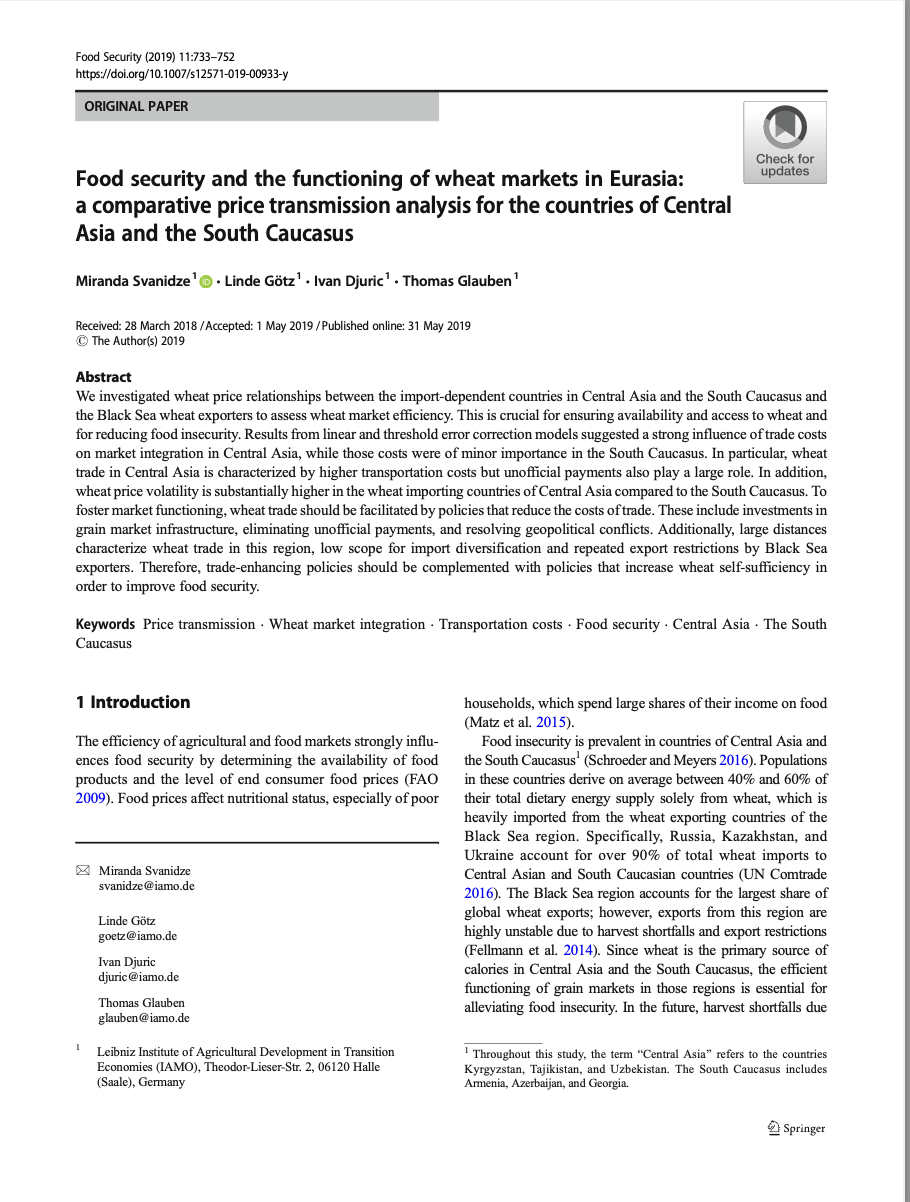Resource information
We investigated wheat price relationships between the import-dependent countries in Central Asia and the South Caucasus and the Black Sea wheat exporters to assess wheat market efficiency. This is crucial for ensuring availability and access to wheat and for reducing food insecurity. Results from linear and threshold error correction models suggested a strong influence of trade costs on market integration in Central Asia, while those costs were of minor importance in the South Caucasus. In particular, wheat trade in Central Asia is characterized by higher transportation costs but unofficial payments also play a large role. In addition, wheat price volatility is substantially higher in the wheat importing countries of Central Asia compared to the South Caucasus. To foster market functioning, wheat trade should be facilitated by policies that reduce the costs of trade. These include investments in grain market infrastructure, eliminating unofficial payments, and resolving geopolitical conflicts. Additionally, large distances characterize wheat trade in this region, low scope for import diversification and repeated export restrictions by Black Sea exporters. Therefore, trade-enhancing policies should be complemented with policies that increase wheat self-sufficiency in order to improve food security.

